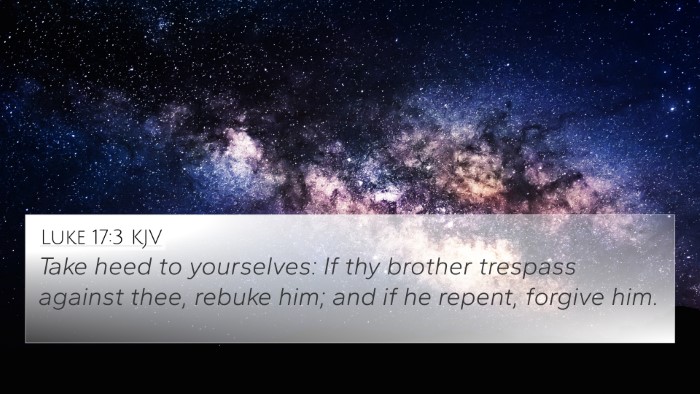Understanding Judges 11:8
Judges 11:8 is a verse that illustrates the complex relationships between the characters in the narrative of Jephthah, the judge of Israel. This verse provides insight into the social dynamics and political considerations during the time of the judges. Below, we explore the meaning of this verse using insights from public domain commentaries.
Verse Context and Analysis
This verse is situated within the story of Jephthah, who is approached by the elders of Gilead to lead them against the Ammonites. The context highlights the tension between Jephthah and his family, as well as the broader socio-political landscape of Israel at the time.
Key Themes
- Leadership and Acceptance: Jephthah’s acceptance by the elders signifies a recognition of his capabilities despite his past.
- Familial Rejection: Jephthah’s earlier rejection by his family due to his illegitimate birth underscores themes of acceptance and rejection.
- Divine Providence: The interplay between human actions and God's purpose is evident as Jephthah rises to prominence.
Insights from Commentaries
Matthew Henry: Henry emphasizes Jephthah's determination to lead despite his background. He points out that the elders’ invitation signifies that qualifications are more important than lineage, illustrating God's purpose working in unexpected ways.
Albert Barnes: Barnes discusses the political motivations behind the elders' request. They recognize the need for a strong military leader amid threats, highlighting the pragmatic governance of Israel.
Adam Clarke: Clarke notes the significance of community in accepting a leader, contrasting Jephthah's earlier isolation. He emphasizes how societal acceptance is often politically driven, revealing the complexities of leadership in ancient Israel.
Bible Verse Cross-References
This verse relates to several other passages that explore similar themes of leadership, rejection, and divine selection:
- 1 Samuel 16:7: God looks at the heart, not outward appearances, paralleling Jephthah's acceptance based on ability rather than origin.
- Judges 6:12: The call of Gideon illustrates God's selection of leaders in times of need.
- Matthew 20:16: The last being first emphasizes the reversal of societal expectations, much like Jephthah’s rise to leadership.
- Romans 9:16: Affirms that it is not dependent on human will or effort, aligning with the unexpected elevation of Jephthah.
- Hebrews 11:32-34: Lists Jephthah among the heroes of faith, confirming his critical role despite his past.
- Psalm 78:67-72: Discusses God's choosing of David, another leader who faced rejection, drawing parallels to Jephthah’s story.
- Judges 10:6-9: Sets the stage for the conditions that led to the need for a leader like Jephthah, illustrating Israel's cyclical rebellion and deliverance.
Connecting the Themes
In linking these scriptures, we see a thematic tapestry woven through the narratives of rejection, acceptance, and God's sovereign choice in leadership. The stories of Jephthah, Gideon, and David highlight that divine selection often disrupts human expectations.
Practical Application
For readers seeking to understand their own paths and leadership roles, Judges 11:8 serves as a reminder that one's past does not define future potential. It encourages the use of tools for Bible cross-referencing to unearth connections that can guide personal growth and spiritual understanding.
The Importance of Cross-Referencing
Engaging in a comparative Bible verse analysis enriches the study of Scripture. Using a Bible concordance or Bible cross-reference guide, one can uncover inter-Biblical dialogues that reveal the depth of Biblical teachings.
Conclusion
Judges 11:8 encapsulates significant themes of acceptance, divine providence, and leadership amid rejection. The insights from various commentaries, alongside cross-referencing related Bible verses, enhance our understanding of this Scripture. By exploring these connections, we gain a richer comprehension of God's workings through leaders like Jephthah, making this verse both relevant and inspiring for believers today.









